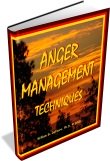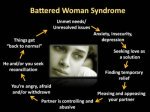GOODFINDING ebook Now On Sale for $.99!
Journaling For Peace Of Mind
Heal Your Emotions And Develop Optimism

Authored by William G. DeFoore, Ph.D.
The journaling processes you will discover and learn here are based on over 40 years of professional experience. These are highly effective tools for anger management, anxiety and depression, as well as developing a more positive attitude.

Research by professionals such as Dr. James Pennebaker and Dr. Robert Emmons has shown that journaling improves your health and contributes to better sleep patterns.
Our approach deals with the problem, and adds a solution.
That is, the first emphasis is placed on writing about the things that bother you, and the second emphasis is on shifting your focus to the positive aspects of your life.
This is a do-it-yourself technique that you can begin now, and continue for the rest of your life. And the benefits you will receive will amaze you.

Write Your Story
Well, not your whole story necessarily, just the parts that are relevant to your problem and your goals. Dr. Pennebaker and others have found consistently that writing about traumatic events has multiple health benefits.
Remember, this is for your eyes only. You will get more benefit if you have no concerns about what others might think about what you're writing.
Let's look at the specific steps you need to take for this part of the journaling process:
- A quiet, private place is helpful, but not absolutely necessary. Get as physically comfortable as you can.
- Get a journal (blank book or note pad) and a pen. The benefits of writing by hand are far greater than typing on electronic devices. Writing by hand accesses more right brain processes, and therefore more emotion.
- Write in detail about all of the things leading up to your painful or traumatic experiences, and then describe the event itself. Focus on your feelings, and try not to doubt or second guess your feelings or perceptions.

- Keep writing about each memory, in different sessions over a period of time, until you feel that you have gotten it all out. You should feel some relief at this point.
- The younger you were, the more deeply imbedded your trauma is. Therefore, be sure you write about all of the things that have upset you, bothered you, scared you or made you angry.
It might help you to imagine that you're telling your story to someone you trust completely, who will not judge you in any way. The more you do this, the more you will come to trust yourself, which is highly beneficial.

Journaling To Understand Your Negative Emotions
Just because they're negative emotions doesn't mean anger, fear and sorrow are bad or wrong. Those emotions are there for a reason.
Hopefully, you found some of the reasons in the first journaling step above. This next step will help you understand them even more.
First, I want you to understand some things about these emotions:
- Pain and sorrow are basically your emotional "ouch" response. Nothing wrong with that. You experience pain and loss of any kind, and it hurts, so you feel sadness.
- Fear is your emotional system saying, "Watch out." Your emotional awareness knows you've been hurt before, so it's on guard against things, people, situations that might hurt you again. It is a protective mechanism. It's only when fear just builds and builds over time that anxiety begins to develop.
- Anger is the push-back response, the "fight" part of the "fight or flight" mechanism. It's not bad or wrong, it just seems that way when it motivates destructive or abusive actions. Be sure you understand healthy anger before doing these writing exercises.
So, you can see that although these emotions are considered "negative," they are totally natural, and serve an important function.
The negative emotions, including anger, are important to visit once in a while, but you definitely do not want to live there full time.
William DeFoore
In other words, you want to understand, feel and release your pain, fear and anger as they come up, so they don't build and become bigger problems. Read about other benefits of journaling.

Journaling To Clear Your Negative Emotions
Now let's look at some ways to use journaling to access, process and release your sorrow, fear and anger as they come up.
This is another writing process. Remember, the more you do this, the easier it gets.
Here are the different types of processes you can use:
- Clearing pain and sorrow: It's important to honor the entire grieving process for this step. Write about who or what you lost, what you loved about it/them, and how your life will be different without them. Remember, this is just a step, so do this, but don't stop here.

- Processing fear: Write about what you're afraid of and why. Play out the entire "worse case scenario." This will activate your more reasonable, big-picture mind, which should help to calm your fears. The idea here is that anxiety comes from unconscious and unexpressed fear, and you're making your fear conscious and expressing it.
- Releasing anger: This is where you honor your anger by "letting it speak." You will find a full description of anger journaling here. It is simply a matter of full, all-out expressing of your anger on paper, without being nice or worrying about what you're saying. It is a kind of purging, which usually helps to calm the anger, and can actually be a good anger management tool.
I sometimes call this type of journaling "draining the swamp," because when you drain the swamp, the alligators have to leave. In this metaphor, the alligators are those old negative emotions you're ready to let go of.
Okay, now that we've cleared the path, let's start with the solutions!

Create A New Default Program
The natural default mental focus is toward the negative, for the simple purpose of making sure you're safe. In other words, your mind automatically looks for problems or potential problems, with the hopes of protecting you.
The problem with the problem focus is that it creates unnecessary stress and anxiety when it is not balanced with a positive perspective.
So, here's a three part journaling process called Goodfinding, that will help you to shift your mental focus to what is good, right and working in your life.
- Gratitude: This is where you journal about all of the good things from your past, whether it was yesterday, or during your childhood. Take your time with this, and to trigger your memory, think of places you lived, friends you've had, and all of the happy times you've had. Focus on the good things, and write, "I'm grateful for..." each time.
- Appreciation: Now you're focusing on all that is good, right and working in your present life. It may be things that you see right in front of you, your health, or your relationships with people in your current life. Remember, you're only focusing on the positive things.
- Optimism: Then go on to focus on what you're looking forward to in your future. Write "I look forward to..." and finish that with the positive things in your future. There are two parts to this:
- Focus on those things that you are sure will happen, like a relaxing weekend, a visit with a friend, a nice dinner and a movie, etc.
- Next focus on the things that you want to happen. This is where you would write things like, "I look forward to feeling better" if you're having health issues, and "I look forward to reaching these financial goals" to improve your financial situation.
Watch this helpful video below, which walks you through the three part Goodfinding journaling process.
Now you have everything you need to clear your anxiety, depression or anger, and begin developing a new default mental focus on the good things in you and the world around you.
We receive commissions on Amazon sales on this website.





New! Comments
Have your say about what you just read! Leave me a comment in the box below.